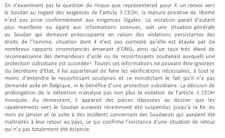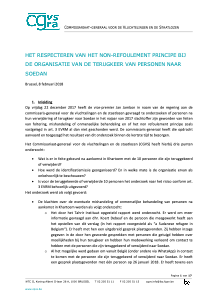Questioning Justice
2017-18

Grateful to the university that formed me in law and criminology, I still owe something to the Ghent law students and prof. Carl Devos, who invited me to hold exactly one year ago the opening conference of the Political Science course at the Law Faculty at the Ghent University. Indeed, I never published the interview I had with the lawyer, mentioned in my closing statement (Law Blog 9 of March 2nd 2017), announced as Law Blog 10, ‘Epilogue in Iraq’.
For this anniversary, and looking forward to hear my successor, the Brussels attorney Fernand Keuleneer on Feb. 21nd 2018, here we go for some excerpts of this long interview.
I remind you Mohamed Saber, an Iraqi citizen, was condemned in relation to terrorist activities in Belgium (also after appeal) but always claimed his innocence. Theo Francken, then not yet State Secretary for Asylum intervened repeatedly in Parliament to get him expelled although the risks for Saber to be tortured back ‘home’ were documented and Belgium faced a risk to be condemned at the ECHR in Strasbourg. On September 20th 2010 Francken – defiant and provocative as ever - declared in the newspaper De Standaard( link to Dutch text) that “if there would be any judicial consequences, we have to take them along”.
That was exactly what happened as I mentioned in my opening conference of on year ago (text in Law Blog 9 of March 2nd 2017).
Indeed, Mohamed Saber was put on a plane to Iraq in what was considered at the time as a ‘voluntary return’. In reality, it was not at all.
On January 31 2012, Belgium was condemned by the ECHR for expelling Mohamed Saber ‘forcibly’ (link to French text M.S. c. BELGIQUE.pdf).
This case is interesting in the actual context of the question of the Sudanese migrants, forcibly (or not) returned to the regime of Omar al-Bashir, indicted by the International Criminal Court for 5 counts of crimes against humanity and 2 counts of war crimes.
The recent report of the Belgian Office of the Commissioner General for Refugees and Stateless Persons (link to French text of Feb 8th 2018 here) rightly assumed – according to national and international jurisprudence – not all Sudanese migrants risk torture or inhuman or degrading treatment or punishment (art 3 ECHR) but this had to be verified in detail and case by case. Those guarantees were omitted by the Belgian Government at least until now, and this explains also the rebuttals faced by State Secretary Francken in recent decisions by the Cour de Cassation (Jan. 31st 2018) and the Brussels Chambre de Conseil (Feb. 13th 2018).
In retrospect, the case of Mohamed Saber is a mixed adventure.
On the one hand, Belgium covered up a forced return as a (false) ‘voluntary’ one – just as it appeared to happen with some Sudanese migrants. The now State Secretary Francken pushed in Parliament to disregard procedures and human rights and added verbatim about the concrete forceful methods whereby Saber or others would be expelled: “This, I leave to my imagination” – which sounds quite sardonic if not sadistic (text 24 11 2010 CRIV 53 COM 047 p. 11)
This is the offending style of Francken that prompted the former EU Commissionner Karel De Gucht to qualify Francken as “politically, ideologically and humanely unfit” for that office (link to Het Laatste Nieuws Dec. 22nd 2017).
On the other hand, finally, the story of Mohamed Saber ended well in Iraq, as you will read here. But this ‘happy end’ is exactly the reason why I can publish it.
However, this should not be considered as a reason for neglecting the issue of human rights and case by case attention to risks faced by migrants – on the contrary.
Anyway, not only my Ghent law students of a year ago but you all deserve to know the happy and interesting end of the story of a man they now can meet in court: as a lawyer.
You are reading now the words of ... lawyer Mohamed Saber (Note: with minimal final editing):
“Although I have pledged to forget the past and look to the future, I will answer frankly and honestly all the questions you asked.
About my law studies:
I studied at the university four years from 2011 on for the first phase in the Faculty of Law and Politics / Nowruz Private University in the city of Dohuk, where I live. This university, which was founded in 2004 in Dohuk province graduated large numbers of students.
Yes, I graduated from the university in 2014-2015 from the Faculty of Law and Politics Nowruz University in Dohuk, and I was the first on all students at a rate of (86.24%) a very good grade I received on November 1st 2015. My work from Saturday to Wednesday, from four o'clock in the evening to half past eight is at the director Office of the Dean of the Faculty of law and policy.
After that I required procedures to obtain the licence of lawyer and since November 11, 2015, I practice the profession of lawyer in the morning. With some of my colleagues we opened an office (general case, companies, legal advice). I settled suits, some in appeal court (such as civil debts, land and commercial transactions, and abuse of state property, a felony such as manslaughter, theft at night).
Most of my work in the legal field is with companies and NGO’s where I got the agency to organize the official residence and organization to help the displaced in the camps Dohuk province.
I try to complete my graduate studies in order to get a master's degree in private law and participated competitive exams in Dohuk state university in the November 7, 2016, but I didn’t get a seat because according to the Ministry of Higher Education and Scientific Research laws demands a certificate and now I study to obtain that certificate and I practice my work at the same time.
You asked about the name (Suleiman) and what it means ? ‘Suleiman’ is my father's name, we in Iraq use the name triple or quadruple: the person's name, then the name of the father, then grandfather and grandfather. So, you reminded me of my father , Suleiman. At the beginning of 2012 I was starting at the University, he suffered cancer and died on March 6th 2012 in the morning on the first day of the year-end exams then. After we finished the burial at the cemetery in the morning I went to exams at four o'clock in the evening.
About where I live:
I live in Dohuk province, one of the three provinces of Iraqi Kurdistan (Erbil, Sulaymaniyah) located in northern Iraq. It is stable since 1991 and has all the necessities of life, and the people of the city of Dohuk tribal love to live with all the ingredients and ethnic Iraq. Foreign tourists did not get any security breach or incident, despite its proximity to the place of conflict and war but enjoy this city areas relics and ancient mountain views and breathtaking waterfalls (I hope that you visit this city) and materials, metal, natural gas and oil, where the US and European companies such as (Exmobil, Shell) Captain oil and exported to the Turkish port of Ceyhan.
There are in this city and the city of Erbil, hundreds or even thousands of businesses and organizations of foreign work in all economic, developmental and charitable and humanitarian fields. It was said that the city of Erbil was second only to Dubai. Unfortunately, this last war and the policies of the central government in Baghdad and foreign intervention have changed all the wishes of the people, especially the people of Kurdistan Dohuk.
About the political situation in Kurdistan:
As for the political situation, we the people of the Kurds we put our trust in the Lord (Massoud Barzani) since the last century. He will realize the dream of the Kurdish people to achieve independence and declare the state of Kurdistan, because the Kurdish people have suffered a lot of injustice, oppression, displacement and war. I expect the President of the Kurdistan region (Barzani) to be wise and rational and accept upon time Kurdistan with full sovereignty as an independent state.
About my arrest, on my return from Belgium:
Indeed, I have been arrested at the airport of Erbil as soon as I got it when I was deported to Iraq on October 27th 2010. Then they put me in prison (Public Security) in Erbil. I have been continuously questioned and investigated for more than twenty days: a very bad situation where I couldn’t find a place in cell to sit in it as well as sleep and take rest. I was subjected to psychological torture, humiliation and handled arbitrary and inhumane. An investigator who does not trust the defendant can get information from him by beatings and torture.
My good fortune was that I managed to talk with the Red Cross when they visited the prison and were able to contact my family in Dohuk. My brother has contacted the concerned authorities, so I was released on bail and the terms and conditions I agreed upon.
I was called in August 2014 to be interrogated again but this time by the General Intelligence. Since then I was not into any interrogation or trial again.
About my trial in Belgium:
I am innocent of the charges and the trial conducted by the Belgian authorities, where I always told the charges were false.
I am a human being like you, I came to Belgium in order to live like you and with you and my son's future and the future of my children, but the Belgian authorities wanted to do some propaganda especially after the events of September 2001.
I was confident in the judiciary of Belgium and I knew this as an independent authority that would bring justice but finally I was disappointed.
I was an asylum seeker and was transported for an interview in Brussels, accompanied by a dozen policemen and three cars. I was blinded and they put something in my ears so as not to hear anything, and during the trip I said to myself “I'm so serious in their view, it would unreasonable to grant me asylum in their country”. When I could see again in Brussels, I found myself in front of three men from the High Commissioner for Refugees. Before they started with questions I told them “thank you, I relinquish the asylum application and I will return to my country no matter what is happening”. One of them tried to retrograde for my decision but I refused it and I asked them to bring me back in prison. I would come back after the end of the sentence.
Then I was deported to the closed center for refugees (Merksplas) from to arrange a transfer to Iraq. I was deported to another center (Vottem) and stayed there also ten months. I tried a hunger strike for a week and did not eat anything. After that the center's director decided to deport me to a another closed center (Brugge).
I agreed to the release conditions and lived for some time in Sint-Niklaas and Houthalen. I started a new life until the authorities returned to arrest me and again put me in a closed center (Brugge).
I stayed there about seven months. Iraq is a dangerous destination for me: a recommendation from the Commission agreed my life is in danger there, and asked authorities to find a third country (Venezuela, Burundi, Malaysia). Burundi agreed to accept me, but I refused to go to Africa.
Finally I was returned to Iraq through the International Organization for Migration (IOM) and arrested as soon as I arrived in Erbil Airport.
About the ECHR judgement (M.S. c. BELGIQUE.pdf) in my case :
The European Court of Human Rights’ decision of January 31st 2012 is fair, just and far from all the political pressures and the security agencies that were practiced by the Belgian authorities. This court will be a symbol of European civilization. But I fear that the Court will be dissolved or not remain to have impact in the future.
However, I hope the Belgian authorities and other European countries will respect human rights and not repeat what happened with me.
My message to your law students:
Tell students the application of the law is more interesting than the studies about it because the laws in the books are difficult to apply. I always find all the people talking about respecting the law, but if it is not found in his favor, all try to escape it. So I hope that your students will care much about law enforcement, particularly in the field of human rights. This must be the focus. If we do not respect that, there is no need to talk about the laws.
My message to the lawyers:
A lawyer is the essence of justice: without a lawyer there can hardly be justice. A lawyer must be proud of his profession, always trying to achieve justice between litigants. It is not important how much money he gains in his work. The important thing is to achieve the justice and prove the claim of his client. I have experience with lawyers in Belgium. To become a lawyer was like a dream but I have achieved that dream. There is nothing impossible in life if you aspire to it. My peace and greetings to all my fellow lawyers (Sylvie Sarolea and others) and I wish everyone to they continue their outstanding work for the defense of the oppressed.
My message to the judges.
Any country where there is justice, also security, peace and civilization will prevail. Without Justice the civilization of a nation darkens. It is the duty of the judge to rule justly and to respond without external interference by security authorities. So a judge must work independent, completely out of the legislative and executive authorities. This independence actually exists in the Belgian courts but this issue has become a concern to the whole world.
In my case, the judge decided several times in favor of my release. Even I remember a judge (a woman) screaming in the face of the prosecutor. Appeal reversed her judgment.
I hope the judges to reject the pressures and to be completely independent in their work and achieve justice for the community - as was the case in the European Court of Human Rights.
My message to politicians in Europe:
The main reason for asylum seekers is dictatorship, war and instability. Western countries should have united against Bashar al-Assad in Syria, for example, at the beginning of the peaceful revolution of the Syrian people to prevent the Syrian tragedy.
And some politicians in the West should stop trading in the refugee issue for political gain – accusing them of terrorism or fostering racism in the hearts of their citizens.
These refugees did not come to your country for picnic or tourism but are forced and you have seen how many of them, especially children, drowned in the sea in order to reach safe areas.
So I hope the European Union will take up its moral and humanitarian responsibility to protect the refugees.
I fear the world will experience more wars, instability and oppression, because the media machine and many politicians are working to differentiate between rights on religious and ethnic lines in the interest of arms dealers.
We are all human beings. God created us all in order to live on this land and this land can accommodate for all. Why do not we live together with respect and peace and security. We might differ in religion, culture, color, race and interests, but mutual respect and respect for the other opinion is the basis of co-existence. You have a religion and I have my religion, you respect my religion and I respect your religion. You don’t invade my country and I don’t invade your country.
You can be happy with me and I will be happy with you. Let me live in peace and let you live in peace. I cherish the safety and freedom and I cherish your safety and freedom. Mutual respect will create freedom, safety and peace.
With best regards,
Saber
opening conference carl devos (10)
15 februari 2018
“On September 20th 2010 Theo Francken – defiant and provocative as ever - declared in the newspaper De Standaard that “if there would be any judicial consequences, we have to take them along”.
M’n op 30 november 2016 bij
Uitgeverij EPO verschenen boek
‘De kracht van rechtvaardigheid’
is in alle boekhandels te verkrijgen
Voor de eerste commentaren
Voor de reactie van de Leuvense
professoren als respondent bij de
boekvoorstelling van 13 12 2016, klik
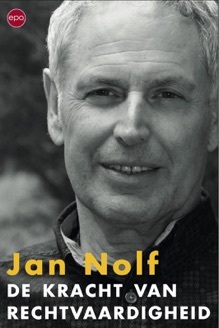

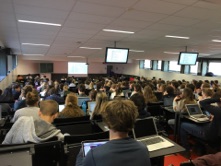
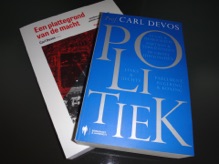

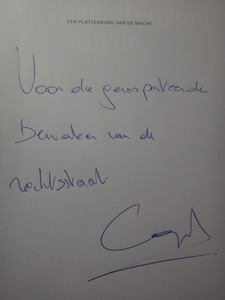
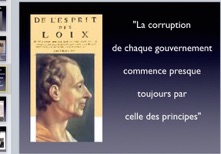
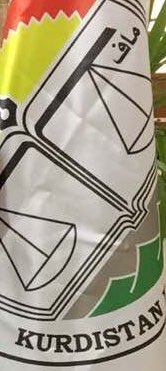
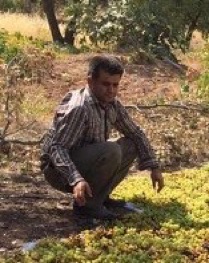
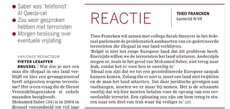

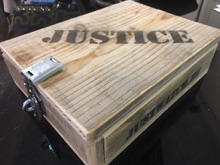


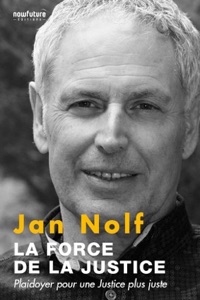
Le 30 novembre 2017, exactement un an après sa parution en néerlandais, mon ‘Plaidoyer pour une Justice plus juste’ paraît en français.
Cliquez ici pour le lien envers NOWFUTURE Editions : je vous invite à y lire (gratuitement) les 20 premières pages
